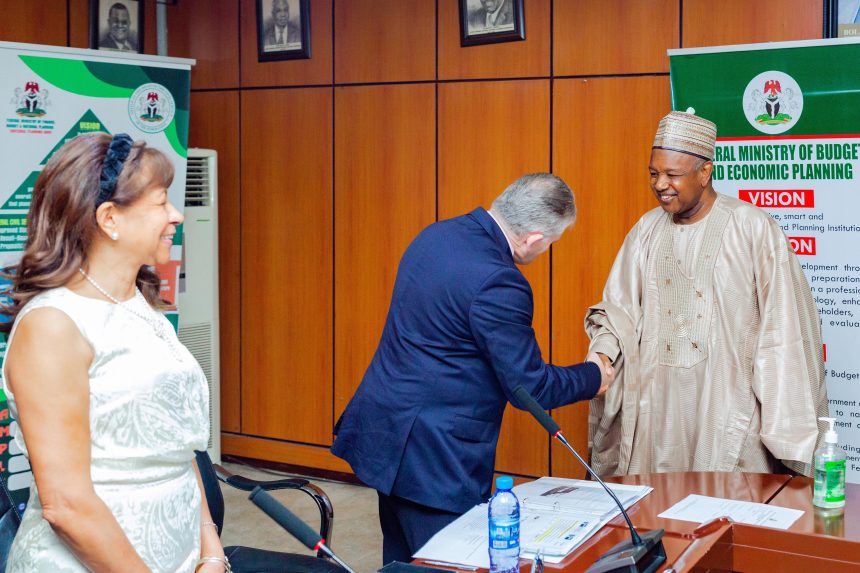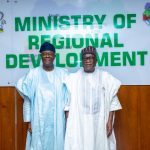Nigeria Seeks Results-Oriented Partnership with Germany to Meet $1tr GDP Goal
By Patience Ikpeme
The Minister of Budget and Economic Planning, Senator Abubakar Bagudu, has called for results-oriented collaboration between Nigeria and Germany to help achieve the former’s $1 trillion economy target by 2030.
The Minister delivered the message in Abuja on Wednesday during a visit by a high-level delegation of the Giessen Chamber of Commerce and Industry (IHK Giessen-Friedberg) of Germany, led by its Chief Executive Officer, Mr. Matthias Leder.
The visit, occurring amid a renewed push for economic diplomacy under President Bola Tinubu’s Renewed Hope Agenda, focused on strengthening cooperation in trade, investment, vocational training, and legal labour migration—all regarded as crucial elements of Nigeria’s goal to become a $1 trillion economy by 2030.
Senator Bagudu emphasized the importance of moving beyond mere formal exchanges toward achieving measurable, strategic outcomes that influence lives and reinforce institutions.
“We are committed to shifting from process to progress — from meetings to measurable results,” Bagudu stated, adding, “What matters most to this administration is impact. Partnerships must translate into jobs, enterprise growth, and tangible development outcomes for Nigerians.”
He praised the German delegation for fostering a results-oriented relationship, pointing out that Germany’s expertise in vocational education and industrial innovation complements Nigeria’s emphasis on inclusive and sustainable development.
Bagudu confirmed that the Tinubu administration’s approach to international collaboration is based on reciprocity, strengthening institutions, and creating long-term value, rather than aid or goodwill.
He stated that: “Our partnerships must be mutually beneficial, rooted in shared accountability and strategic results. The Federal Ministry of Budget and Economic Planning regards these engagements as means to turn the National Development Plan into tangible, measurable outcomes.”
Senator Bagudu concluded by stressing that structured, legal migration forms part of the government’s broader strategy to transform population potential into economic benefit.
“We must transform Nigeria’s youthful population into productive capital,” he stated, continuing, “Through initiatives like this, we are not just exporting labour — we are exporting skill, knowledge, and global competitiveness.”
He further revealed that the forthcoming 2026–2030 National Development Plan would formalize such international partnerships as means for boosting human capital development, trade facilitation, and innovation-led growth.
“We are deliberate about where we are going as a nation,” Bagudu affirmed. “Our goal is to make Nigeria a hub for talent, productivity, and responsible global collaboration. That is the spirit of President Asiwaju Bola Ahmed Tinubu’s Renewed Hope Agenda.”
In his remarks, Mr. Matthias Leder, Chief Executive Officer of IHK Giessen-Friedberg, expressed appreciation for Nigeria’s sustained engagement and confirmed the chamber’s readiness to expand cooperation in enterprise development and structured migration. He also formally invited the Minister to deliver the African Keynote Address at the 2026 edition of The World Meets in Giessen conference in June, a global business platform that attracts participants from various countries.
The Acting Permanent Secretary and Director of International Cooperation, Dr. Samson Ebimaro, spoke about the ministry’s commitment to establishing results-based partnerships that align with Nigeria’s development priorities.
“While processes are important, results matter even more,” Ebimaro said, adding, “Our focus is to strengthen systems, build local capacity, and ensure that every engagement leaves a measurable footprint on national development.”




